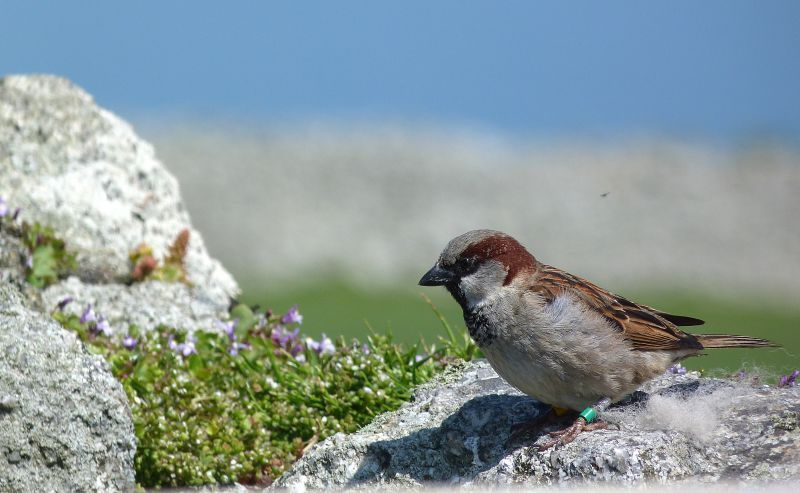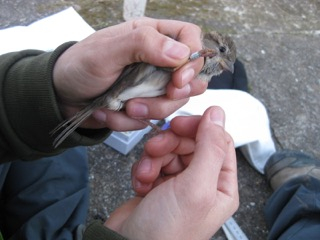Progeny of old parents have fewer offspring
Long-term study in house sparrows shows that offspring of older parents themselves produced fewer young. Such a transgenerational effect is important for the understanding of the evolution of longevity.
Reproducing at old age may incur risks such as a higher infant mortality or chromosomal anomalies. Moreover, children of old parents have themselves fewer offspring or have a shorter lifespan, which is commonly known as the "Lansing effect" that was demonstrated not only in humans but also in mice and some invertebrates in the laboratory but never in free living populations. Julia Schroeder from the Max Planck Institute for Ornithology in Seewiesen and colleagues from the University of Sheffield and the University of Otago in New Zealand have now investigated this effect in a population of free-living house sparrows.

The study site of the ornithologists is a small, remote island off the coast of Devon in Southwestern England where the researchers have monitored and ringed the entire house sparrow population in the course of more than 10 years. The researchers took blood samples from the parents and their offspring in order to determine genetic parentage. That way they obtained a unique and detailed genetic pedigree of more than 5000 birds with a precise knowledge of the age and the number of offspring for each individual. To test whether a possible effect is inherited or due to environmental factors entire clutches were systematically cross-fostered. The analysis revealed a clear result. First, old mothers had a negative effect on the fitness of their daughters, meaning that these daughters produced fewer young. Similarly, older fathers produced sons that had fewer offspring. In particular, this has negative consequences for offspring that resulted from extra-pair matings, as a previous study has shown that house sparrow females seek extra-pair matings preferably with older males. Hence, according to the results of the present study, a female strategy to mate with viable males proves to be disadvantageous.

"Thus, these results cannot be explained by changes of the environment but rather by the constitution of the parents, which changes with increasing age through epigenetic processes. This transgenerational age effect may change the selection pressure on longevity within a population", says Julia Schroeder, first author of the study and funded by the Volkswagen Foundation in the initiative "
Evolutionary Biology". "The results are potentially important for breeding management programs of endangered species that often use old individuals from different populations to maintain genetic variability", adds the researcher.
Julia Schroeder, Shinichi Nakagawa, Mark Rees, Maria Elena Mannarelli, Terry Burke
Reduced fitness in progeny from old parents in a natural population
Proceedings of the National Academy of Sciences (USA) PNAS: http://www.pnas.org/content/early/2015/03/05/1422715112.abstract More Information:
http://www.mpg.de/9013089/birds-age-offspring
